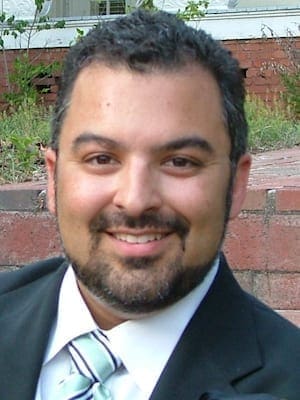Christianity is beginning to flourish again in Cuba.
This was evident during a mission trip that I took with a small group of clergy and lay leaders to Cuba through the Cooperative Baptist Fellowship (CBF) in early November.
In partnership with the Fraternity of Baptist Churches in Cuba, the CBF has been nurturing mission opportunities over the past several years.
Juan Ortiz was a little boy when he and two dozen sailors went from Havana to Tampa Bay in search of conquistador Panfilo de Narvaez and nearly 200 men in the early 16th century.
Narvaez failed to reach a rendezvous point, and his wife, back in Havana, sent a search party of which Ortiz was a part.
Upon their arrival, a few men and Ortiz went ashore to inquire with the natives. It did not take long for the situation to worsen.
The natives bludgeoned the sailors while Ortiz was captured, bound and placed over a bonfire pit. Moments before the flames licked Ortiz’s bare back, a young native girl interceded with the tribal chief. He sparred Ortiz’s life.
Ortiz learned the culture, hunted and gathered with the men, took a wife, created a family.
Several years later, De Soto and a new wave of adventurers found Ortiz, who then joined the crew as translator and guide. They went as far as the Mississippi before Ortiz met his fate in a rushing river.
As Marjorie Stoneman Douglas puts it in her classic book, “The Everglades,” “Juan Ortiz, whom the Indian girl had rescued, would find his death also, drowned crossing an unknown river, weighted down with Christian clothing and armor.”
This little anecdote rightly describes religious life in Cuba over the past 50 years.
As a thriving island democracy, Cuba soon saw a breakdown in both politics and religion after the Castro revolution overthrew President Fugencia Batista in 1959.
Christianity protested with the weight of its own armor and influence but ultimately drowned under the rushing river of atheism and anti-imperialist propaganda that followed communist victory in 1965.
Now, nearly a year after Fidel Castro’s death, Christianity is learning how to swim again.
While some Baptists still weigh down faith with the clothes of a type of Christianity imported from the United States, many others have cast off consumerist models of religion in search of a thoroughly Cuban Christianity.
This is a daily, uphill spiritual battle.
Where the atheists don’t resist Christian growth, the occult Santaria movement vies for more converts to its own cause.
Where Christian missions try to recreate the megachurch mindset of North America and Africa, many Christian Cubans struggle to keep an indigenous faith that resists the shortfalls of capitalism and consumerism. The daily lives of Cubans exist somewhere in the middle of all of this.
The Baptists that we worked with – those who make up a community of 40-plus churches known as the Fraternity of Baptist Churches in Cuba – try to blend an indigenous cultural beauty for which Cuba is known with a steadfast gospel that embodies Christ’s salvation, compassion and mission.
It is not a Christianity weighed down with Western ideals, though it does borrow heavily from an incarnational model of missions that promotes social justice and the rhetoric of liberation that stems from Latino theologians, such as Oscar Romero and Justo Gonzales.
Ortiz died because he divorced himself from the very culture that guaranteed safe passage through hostile native environs of Florida.
Cuba’s Christian churches are trying to live by divorcing themselves from unhealthy models of Christian mission known for emphasizing otherworldly salvation at the expense of – or, at times, total abandonment of – community transformation.
If anything, Baptist Cuban churches are poised for growth precisely because they have engaged in ministries that bolster the Cuban imagination, especially those that are profound in Christian protest against systemic oppression, all while being sensitive to the deepest needs that exist in the local communities where the real spiritual battles are being waged.
As one local Cuban pastor told me, this is not a forcing of Martin Luther King Jr.’s “arc of history that bends towards justice,” but a long game that seeks total and utter reformation for the sake of Christ.
This is not a reformation of their own making and in their own time, but in the “kairos,” cosmic time whereby God’s kingdom will imbue earth as it is in heaven.
Joe LaGuardia is senior pastor of First Baptist Church in Vero Beach, Florida. He is the author of “Awe and Trembling: Reflections for the Christian Journey,” a book of articles and homilies. A version of this article first appeared on his blog, Baptist Spirituality. It is the first in a series on his blog reflecting on his recent mission trip to Cuba. It is used with permission.
Joe LaGuardia is senior pastor of First Baptist Church in Vero Beach, Florida.

